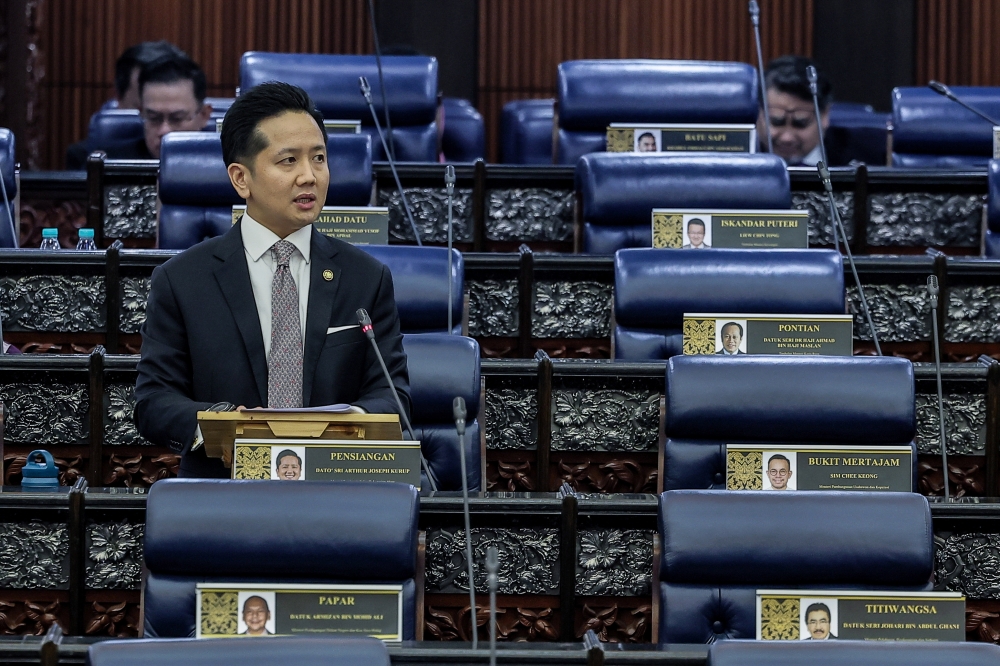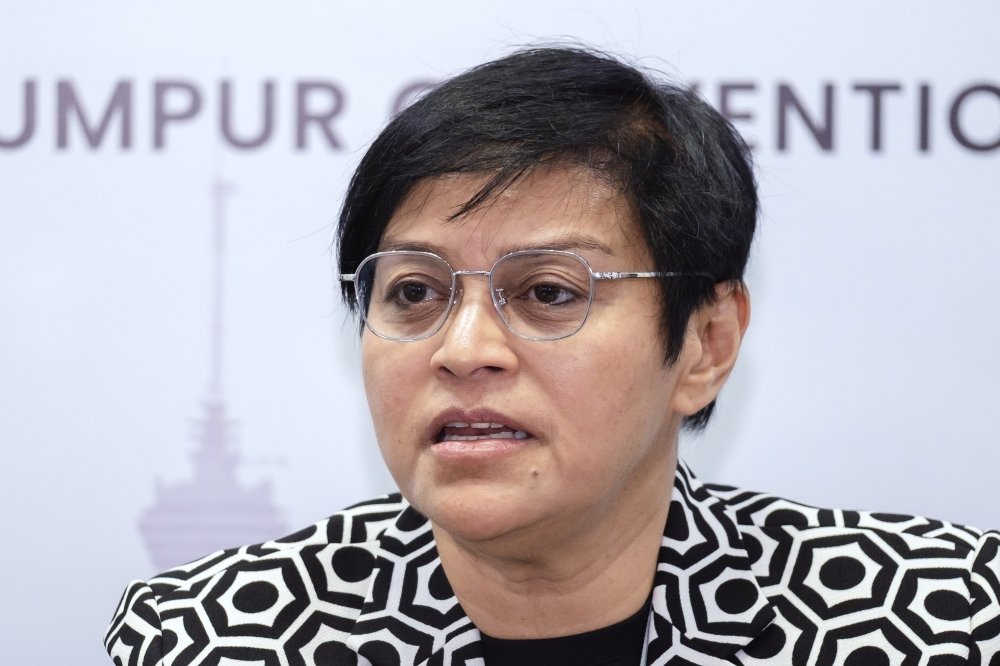KUALA LUMPUR, Oct 4 — The prosecution today insisted that a businessman’s cheques, totalling RM5 million and personally handed over to Datuk Seri Ahmad Zahid Hamidi as purported donations were actually money corruptly received by him, and that the subsequent use of this money for a mosque project does not make it legal.
Today, the prosecution was presenting its arguments in the High Court on why former home minister Ahmad Zahid should be called to enter defence and explain himself against eight corruption charges involving a total of RM21.25 million.
Deputy public prosecutor Gan Peng Kun zoomed in on 10 cheques totalling RM5 million which were issued by textile wholesaler Junaith Asharab Md Shariff via his company Berani & Jujur Trading, and which this businessman had passed to Ahmad Zahid in the latter’s house in 2017.
Junaith Asharab had previously as the 36th prosecution witness told the court that he had intended the RM5 million to be a donation for a mosque and a tahfiz school in Bagan Datuk, and that there was initially no recipient named for all 10 cheques but that he was later told by Ahmad Zahid to name law firm Lewis & Co as the recipient.
Gan noted that Ahmad Zahid’s lawyers had recently highlighted that the law firm Lewis & Co’s partner Muralidharan Balan Pillai had confirmed using the 10 cheques totalling RM5 million to pay Noble Energy, which was the contractor for mosque construction.
Gan however pointed out that the corruption charge that Ahmad Zahid is facing is only related to the reason for why the money was allegedly corruptly received, and is not about what this money was later used for.
“We submit, the ends do not justify the means. The purpose the accused (Ahmad Zahid) received the 10 cheques from Junaith cannot be legalised by the fact that they were subsequently used to pay the contractor of the mosque,” Gan told the court today.
In order for the prosecution to prove the corruption charge involving the RM5 million against Ahmad Zahid, Gan said the prosecution does not need to prove how the alleged bribe received by Ahmad Zahid was spent, but instead needs to prove that he had received these 10 cheques as an inducement for him to help Junaith Asharab-linked Mastoro Kenny IT Consultant & Services to get MyEG projects.
This due to there being only three elements for this corruption charge under Section 16(a)(B) of the Malaysian Anti-Corruption Commission Act that the prosecution needs to prove, namely the accused is an officer of a public body in his capacity, that the accused corruptly received gratification for himself, and that the gratification was received as inducement to do anything in relation to a matter or transaction — either actual or proposed or likely to take place — in which the public body is concerned.
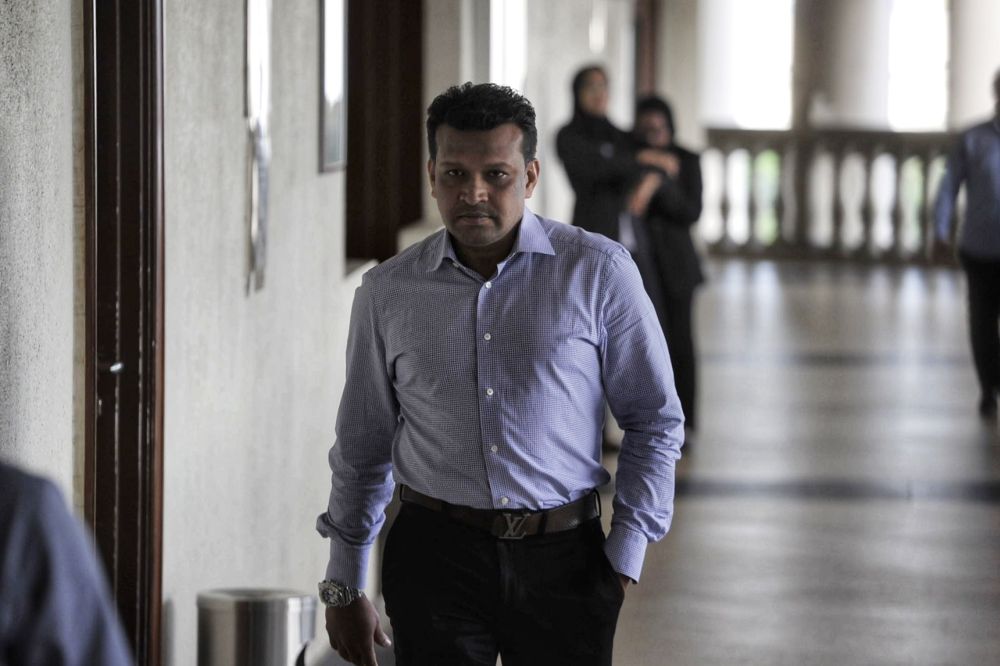
Can the witness be trusted about alleged post-GE14 project promise?
Previously, Junaith Asharab had told the court that Ahmad Zahid had promised to award him MyEG projects worth RM50 million after the 14th general election at the same time after the cheques were handed over, and that Ahmad Zahid had asked him to send in proposals for the “promised MyEG project” after the 14th general elections.
Today, Gan said that Junaith Asharab’s testimony about the alleged projects promised by Ahmad Zahid could be considered to be credible.
Gan noted that Junaith Asharab had previously told the court that he had asked his former schoolmate M. Kumaraguru M. Muthusamy to register the company Mastoro Kenny with the Companies Commission of Malaysia to carry out the MyEG project allegedly promised by Ahmad Zahid.
Kumaraguru had previously confirmed in court that he had set up Mastoro Kenny in 2016 on Junaith Asharab’s request as the latter claimed to be able to obtain projects from public-listed firm MyEG Services Bhd, but said the company never received any projects from anyone since its 2016 formation until its closure.
Today, Gan noted that the Companies Commission of Malaysia’s records show that Mastoro Kenny was registered in August 2016 but that its registration was left to expire a year later and not renewed, while two other related businesses which had issued cheques given to Ahmad Zahid — Junaith Asharab’s Berani & Jujur Trading and Kumaraguru’s Jogabonito Jewellery & Diamonds — remained active as they were “genuine businesses” run by the Junaith Asharab and Kumaraguru respectively.
“This goes to show Mastoro Kenny was set up only to receive the MyEG projects as stated by Junaith,” Gan said, when arguing that this was one of the reasons why Junaith Asharab’s court testimony on the alleged project promise by Ahmad Zahid can be “accepted as the truth”.
Junaith Asharab previously told the court that he had given a RM250,000 cheque by Jogabonito to Ahmad Zahid’s younger brother Datuk Seri Mohamad Nasaee Ahmad Tarmizi in 2016 as a loan which the latter repaid, and that he had in 2016 handed over 13 cheques totalling RM8 million issued by Mastoro Kenny and in 2017 handed over 10 cheques totalling RM5 million from Berani & Jujur to Ahmad Zahid in the latter’s residence for the purpose of donating for a mosque and a tahfiz school in Bagan Datuk.
These three amounts are the basis for three out of eight corruption charges that Ahmad Zahid is currently facing.
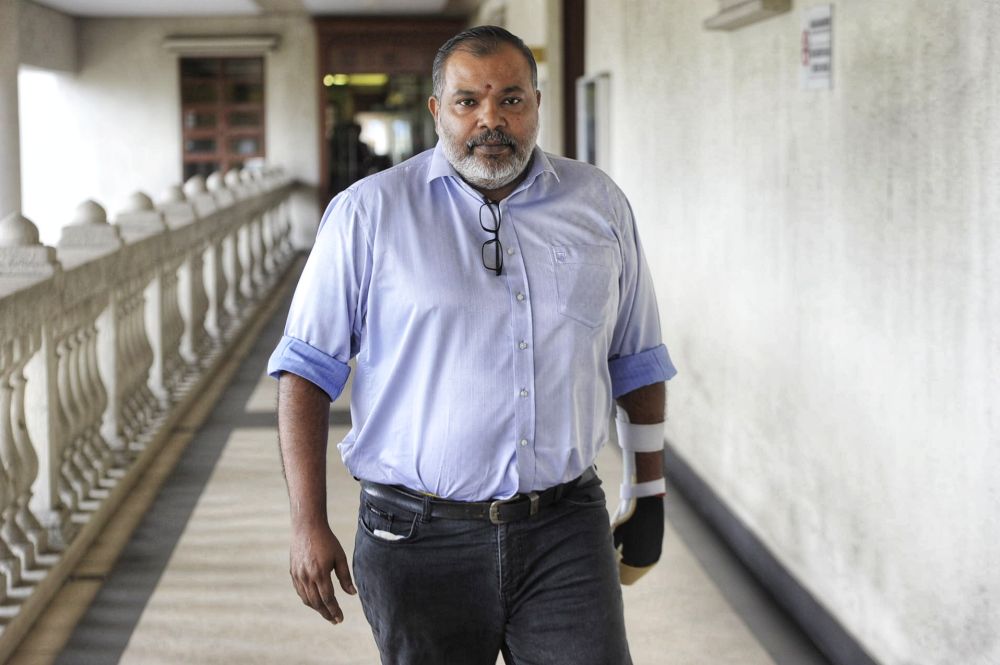
Ahmad Zahid’s lawyers had previously presented MyEG’s October 2018 company announcement to Bursa Malaysia to show that there was no inducement for him to help Mastoro Kenny get MyEG projects, as the listed firm MyEG had denied knowing of any dealings between Mastoro Kenny and Ahmad Zahid and said it had never awarded any projects with Mastoro Kenny and had never made any payment to secure government concessions.
Gan said that this does not matter, as the corruption charge that Ahmad Zahid is facing is over his alleged promise to help Mastoro Kenny get MyEG projects is a “future event which has not yet happened”, and that inducement refers to future actions.
Gan also said that such company announcements to Bursa Malaysia are meant to disclose timely and accurate information to investors and meant for share market purposes, and should not be taken at face value to be truthful for the purpose of court proceedings.
He argued that this was because there was no evidence to show the company announcement is true and that no investigation has been carried out to confirm it is truthful, while Bursa Malaysia itself also has a disclaimer to state that it does not guarantee the accuracy of the content of such announcements.
Prosecution asks why cheques not returned by Ahmad Zahid
For Ahmad Zahid’s eight corruption charges over money allegedly corruptly received by him, three of the charges involve cheques totalling RM13.25 million handed over to him by Junaith Asharab, and two involve cheques totalling RM6 million handed over to him by former Datasonic Group Berhad director Chew Ben Ben as an alleged reward for a passport chips project being given to Datasonic Technologies Sdn Bhd, and the remaining three charges involve cheques totalling RM2 million handed over to him by Profound Radiance Sdn Bhd’s Azlan Shah Jaffril as an alleged reward for the company’s appointment to operate one-stop visa processing centres in Nepal and Pakistan.
In relation to all eight corruption charges, Gan noted that Ahmad Zahid’s lawyers had argued that the cheques totalling RM21.25 million were banked into the law firm Lewis & Co and placed in fixed deposits to be kept under the file of client Yayasan Al-Falah.
Gan however suggested that this was “layering” commonly seen in money-laundering, and pointed out that the law firm’s partner Muralidharan said that the instructions to place the money in fixed deposits under Yayasan Al-Falah came from Ahmad Zahid.
Ultimately, Gan said it is sufficient for the prosecution to show that Ahmad Zahid had personally received the cheques from the 34th, 36th, 38th prosecution witnesses in order to prove the corruption charges, also saying the cheques should have be paid directly to Yayasan Al-Falah instead of Lewis & Co if the foundation was intended to be the recipient.
Gan also argued against Ahmad Zahid being released from the eight corruption charges, saying that he should be asked to explain his conduct or actions in relation to the cheques totalling RM21.25 million.
“If the accused did not intend to receive the cheques in the first place, then he should have returned the cheques to the givers (SP36 — Junaith Asharab, 34 — Chew, 38 — Azlan Shah), but this was not done.
“The law on conduct, there is no party — not even the trial judge — that can offer explanations for conduct, only the accused can explain why he did not return the cheques to the giver, and that’s why the defence has to be called,” he said.
Responding specifically to Ahmad Zahid’s lawyers’ argument that their client had never demanded or solicited money from Azlan Shah, Gan pointed out that the corrupt receiving and corrupt soliciting of money are different charges.
“I further submit that if the accused did not demand the money, then why did the accused not return the cheques from SP38 - Azlan Shah? Instead the cheques received from SP38 were cashed into Lewis & Co’s client account. This is the conduct of the accused and can be explained by the accused only, and therefore he must be called to enter defence,” he said.
Gan had also highlighted that witnesses had testified of the crucial role that Ahmad Zahid has as the home minister when it comes to the awarding of the projects to Datasonic Technologies and Profound Radiance.
In this trial, Ahmad Zahid — who is the current Umno president and former deputy prime minister — is facing 47 charges, namely 12 counts of criminal breach of trust in relation to charitable foundation Yayasan Akalbudi’s funds, 27 counts of money laundering, and eight counts of bribery charges.
The trial today was only heard during the morning session and did not continue in the afternoon, as Ahmad Zahid’s lawyer Hamidi Mohd Noh had requested for the trial to continue tomorrow morning as his client — who is the Bagan Datuk MP — was scheduled to speak at 3pm in the Dewan Rakyat in parliamentary debates in support of the 12th Malaysia Plan.
The trial before High Court judge Datuk Collin Lawrence Sequerah resumes tomorrow.
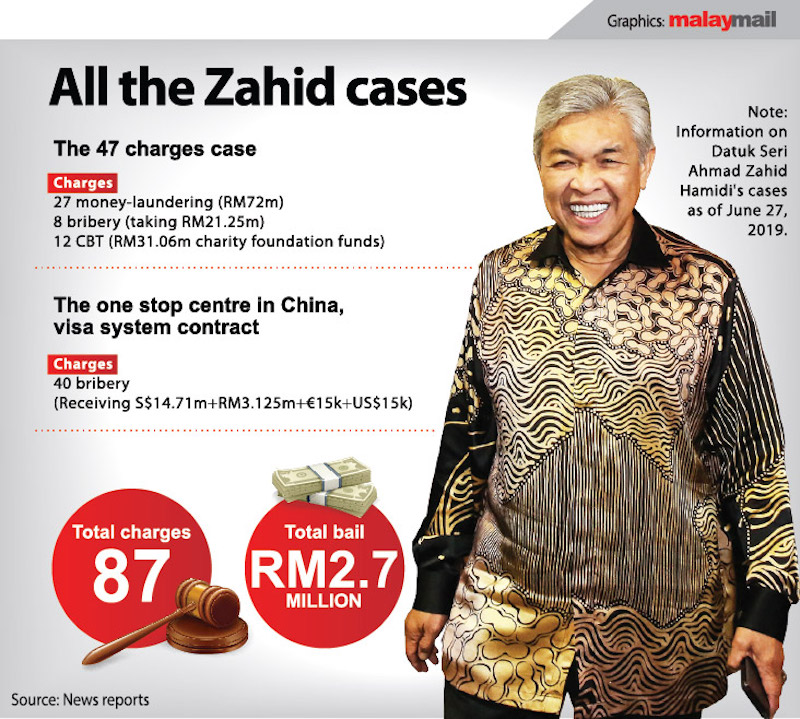

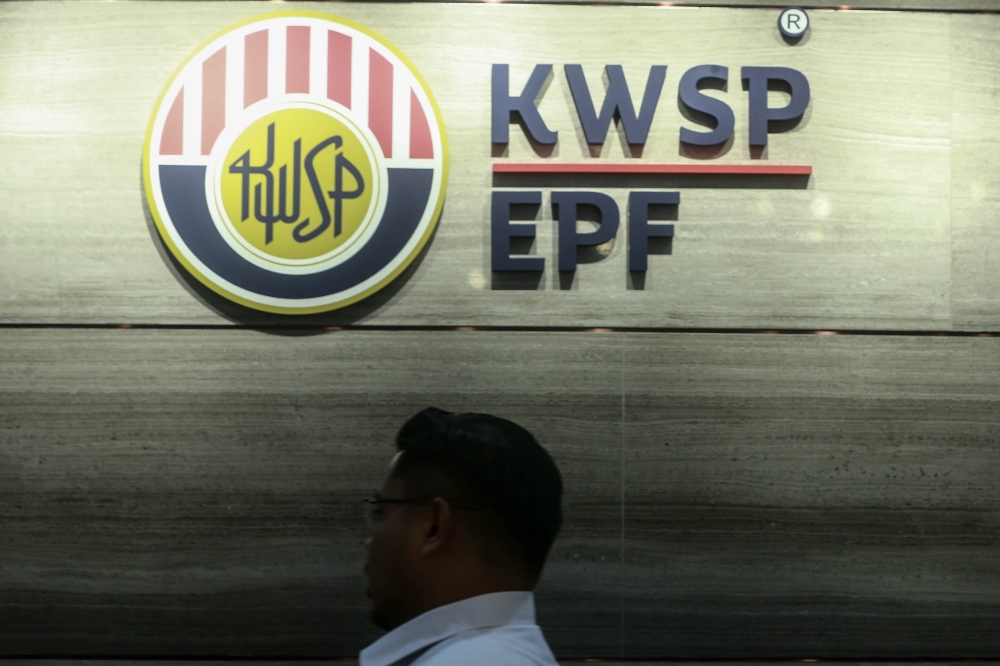
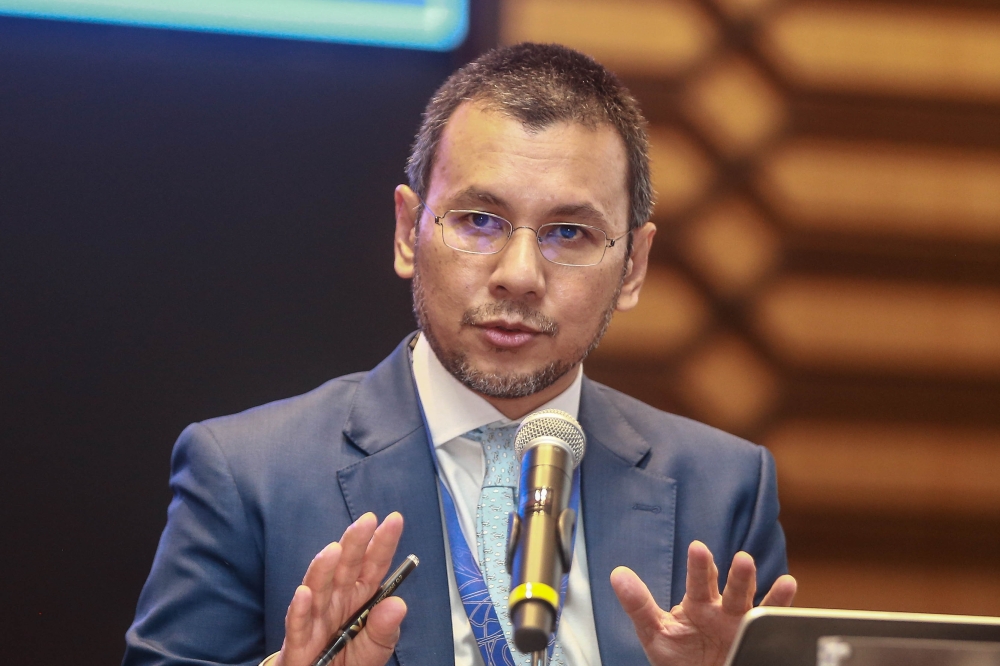
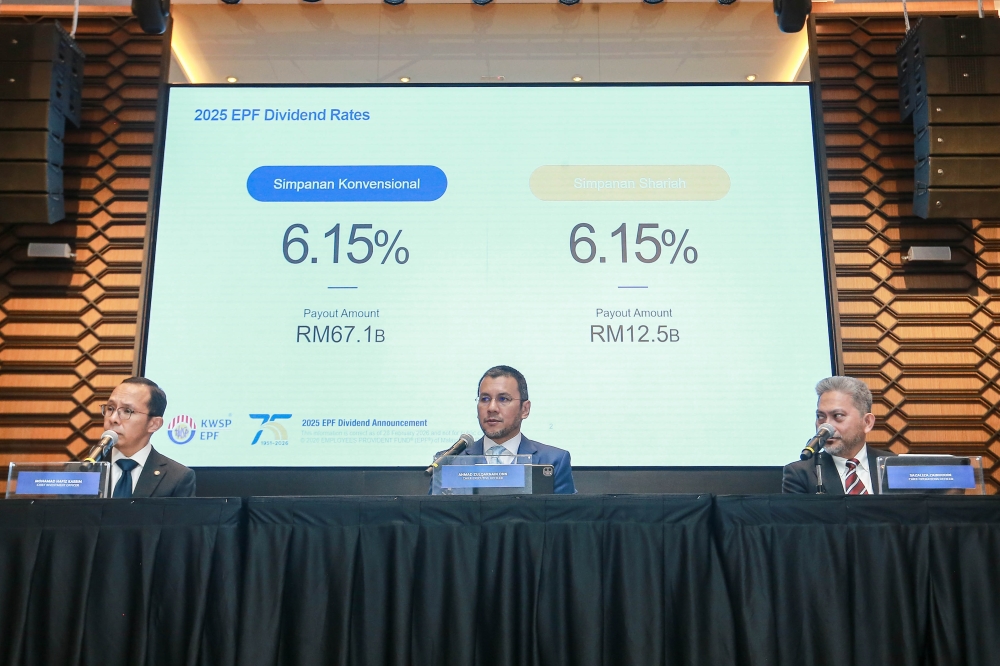
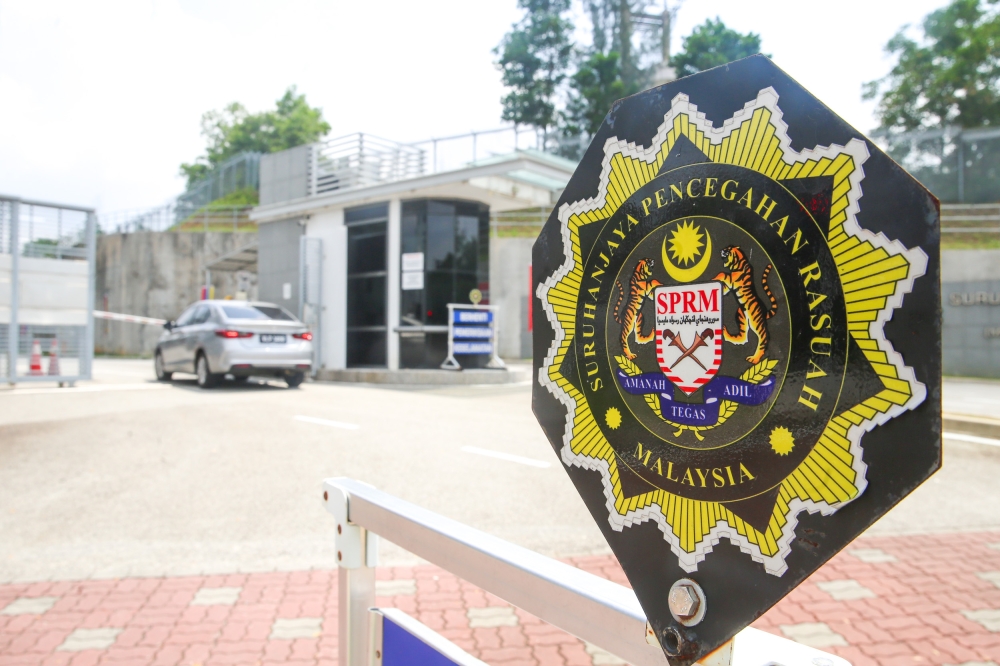
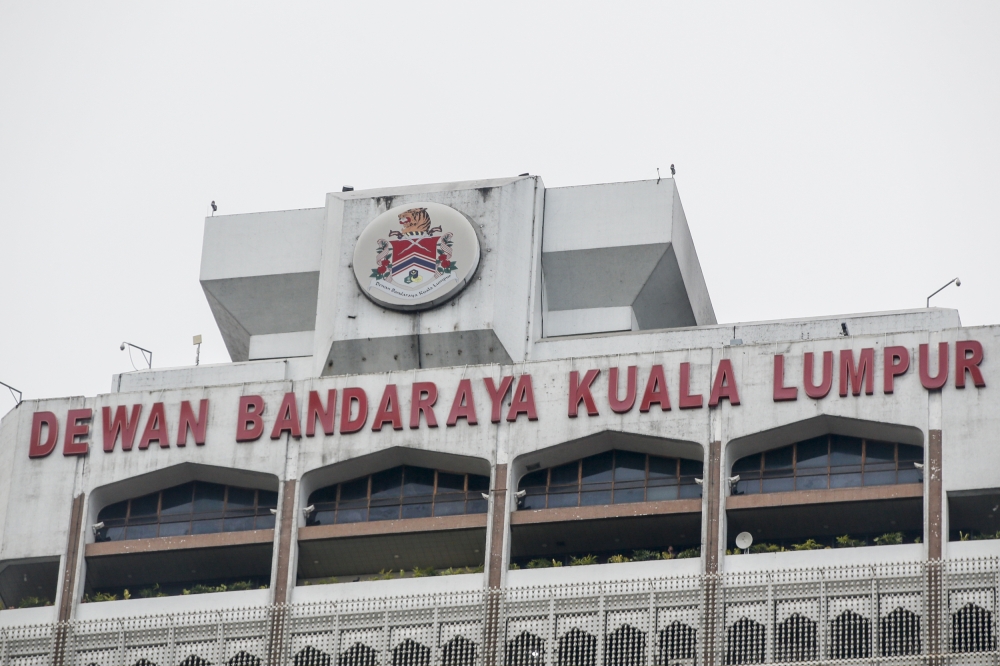
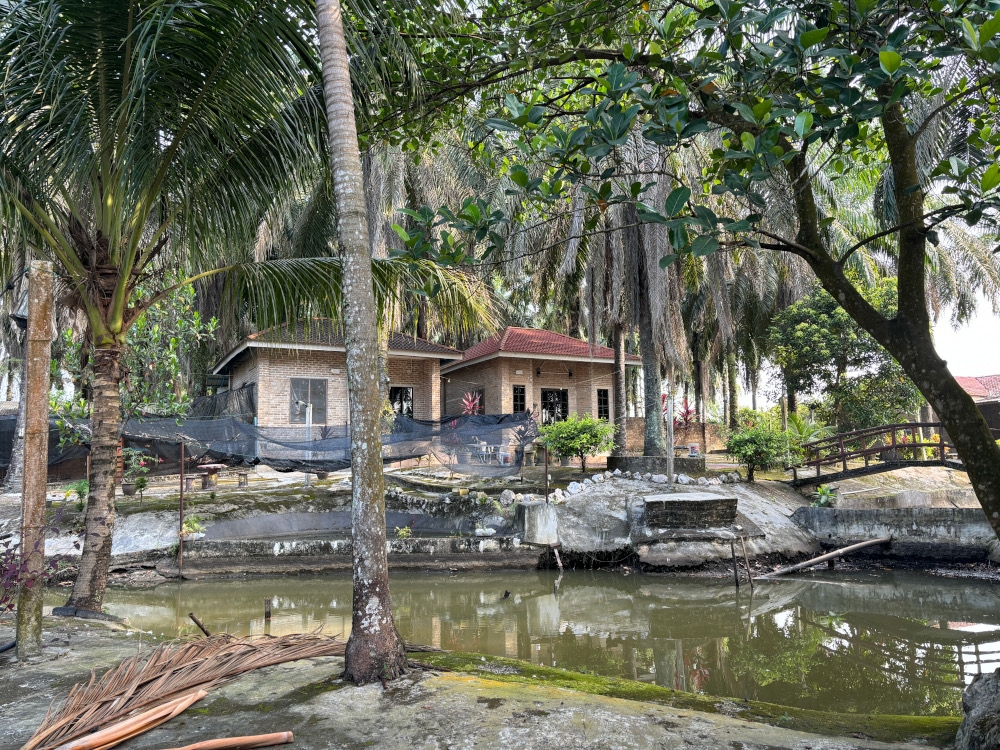



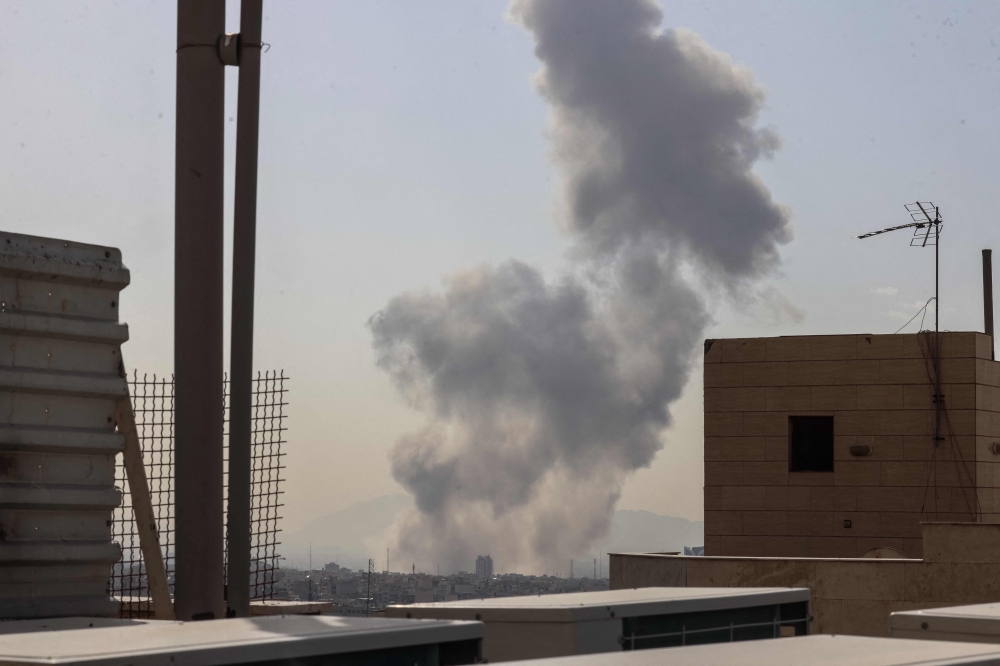
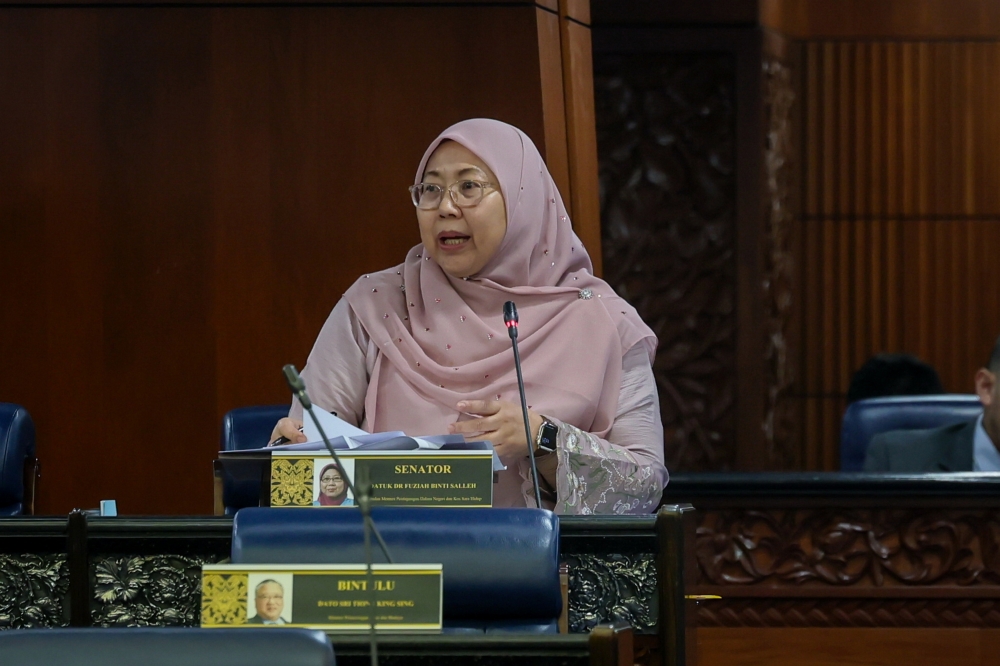
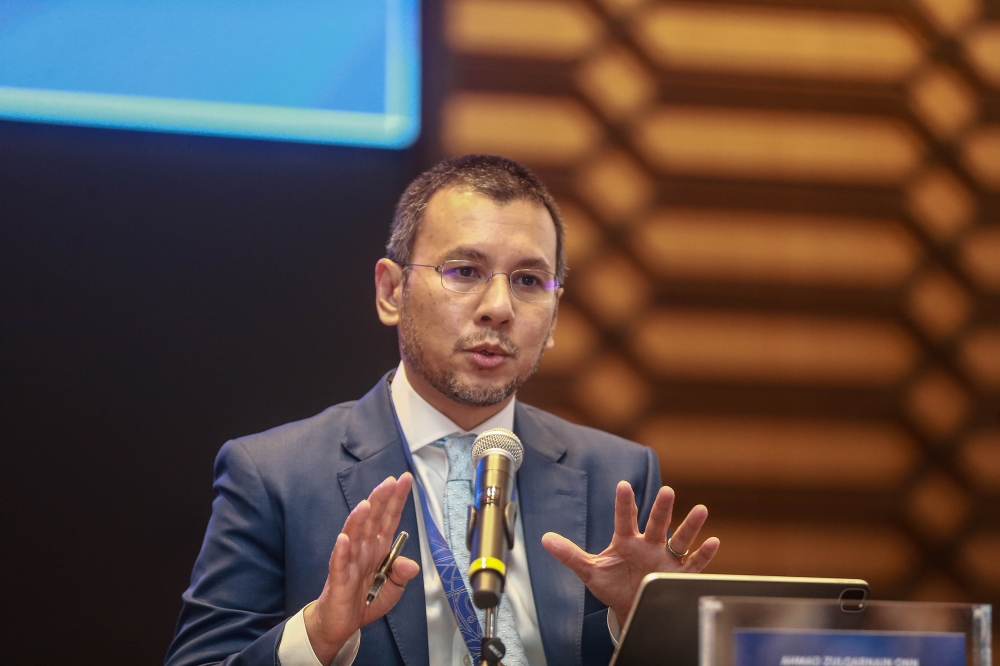
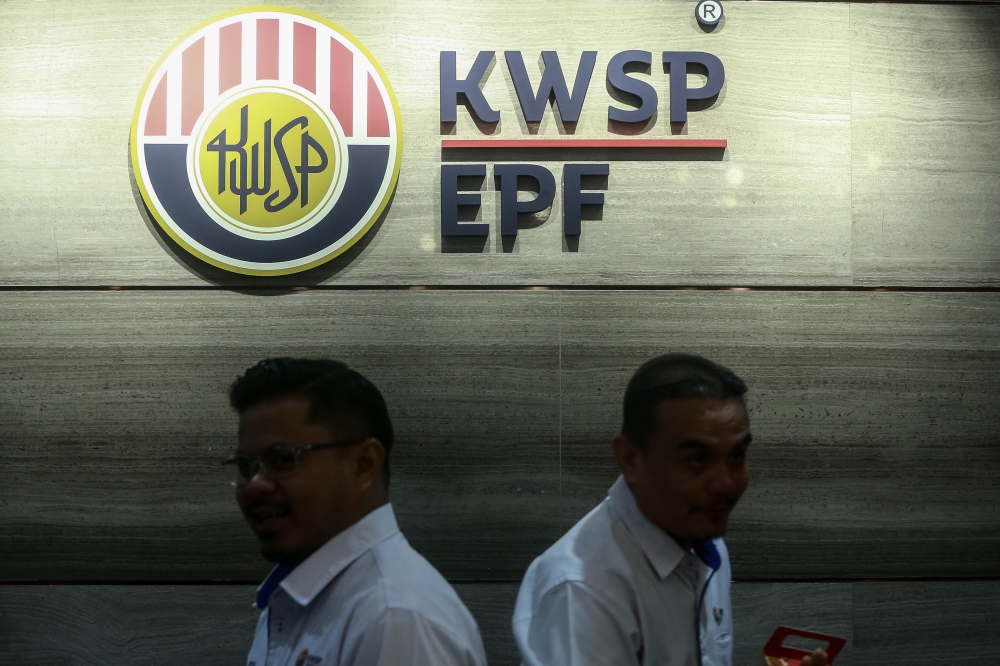

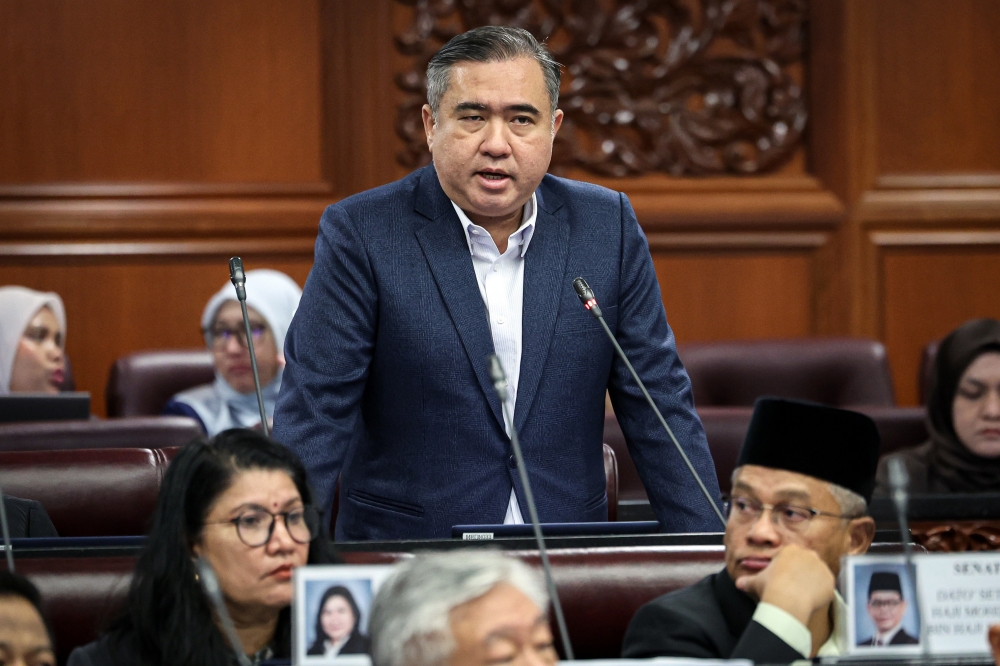
.jpg)
